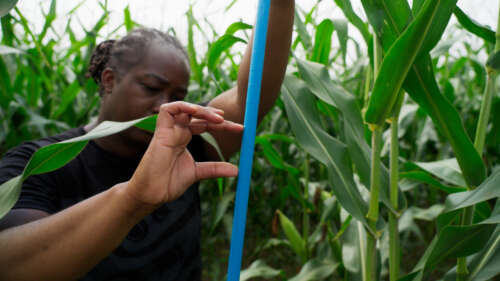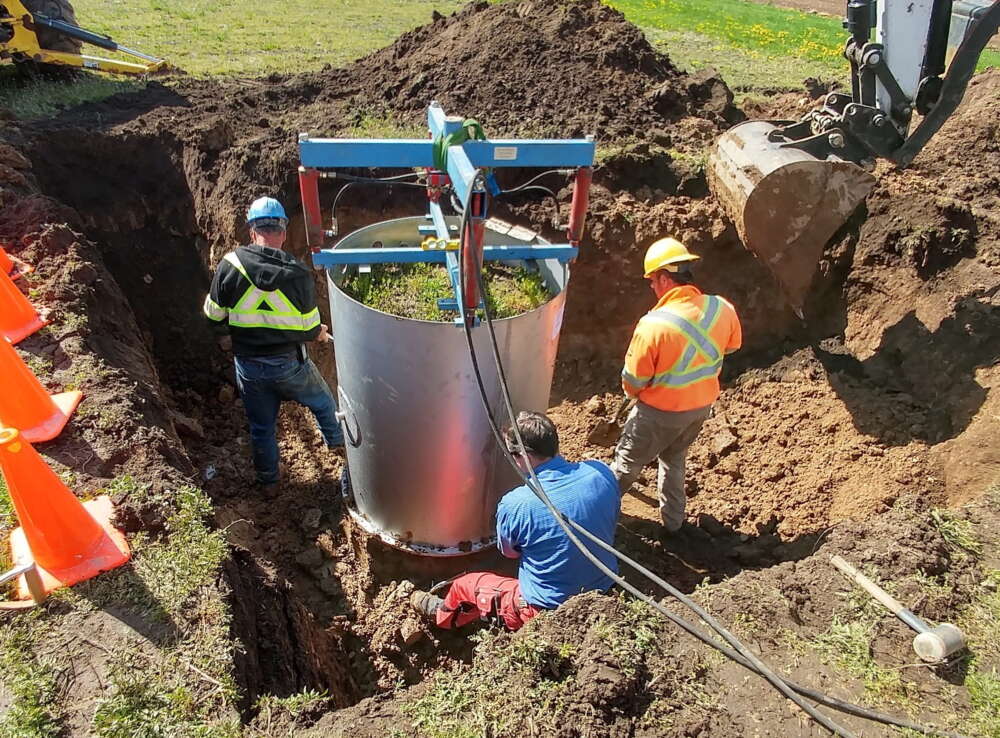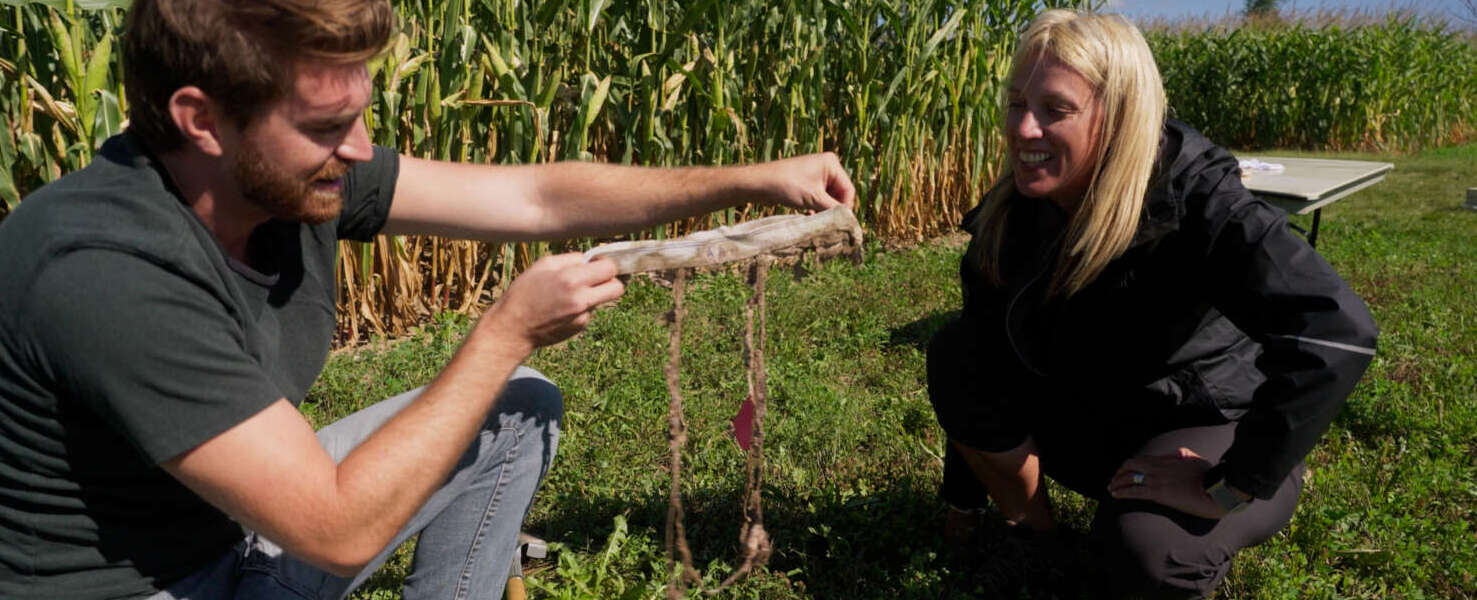The unique research University of Guelph experts conduct and have amplified through the Soils at Guelph initiative are featured in an episode of TVO’s Water Brothers titled “Save our Soils.”
Four U of G soil experts from the School of Environmental Sciences – Dr. Claudia Wagner-Riddle, Dr. Kari Dunfield, Dr. Adam Gillespie and Dr. Genevieve Ali – are part of the half-hour mini documentary, which is available now for viewing on TVO’s YouTube page.

“Save our Soils” explores the way soil is foundational to clean water and our food supply; the world loses 36 billion tons of fertile soil every year, driving up food costs. The U of G faculty members share with the Water Brothers how they are helping to protect the vital connection between healthy soil and water management.
“It’s fascinating to try to understand [soil] better, and to try to relate it to all of these very pressing environmental issues,” Wagner-Riddle says in the episode.
A professor of agrometeorology, Wagner-Riddle studies how crop rotation and cover crops improve soil and the environment, conducing her research at the soil health monitoring station at the Ontario Crops Research Centre in Elora.
The centre is equipped with the largest installation of field-weighing lysimeters in North America, which are used for various research projects, including investigating how different crop rotations affect soil health.
Making soils research findings accessible to the public

Soils at Guelph, part of the Ontario Agricultural College, is an outreach initiative that began in 2018 to advance soil management in Ontario. Its aim is to make soils research findings accessible to the public and to encourage knowledge sharing between researchers, farmers, industry and government.
U of G researchers have been measuring crop performance at the Ontario Crops Research Centre across the province, with some trials in Ridgetown and Elora dating back for 25 and 40 years, respectively. These research initiatives were made possible in part by the Ontario Agri-Food Innovation Alliance, a decades long collaboration between U of G and the Government of Ontario.
With over 65 combined years of long-term rotation plots research data available, researchers can demonstrate the tangible benefits of crop rotation, giving growers and their advisors the confidence to conduct their own trials.
Dunfield studies microbial communities in soils. She shows the Water Brothers the results of a demonstration called Soil Your Undies that sees cotton underwear buried in soils from different crop rotations. The underwear planted in soil with the least disturbance (low tillage) and the most crop diversity, including cover crops, sees the most degradation, which is evidence the soil contains high numbers of beneficial microbes, Dunfield says.
Ali, a researcher in process hydrology, uses coloured water to demonstrate to the Water Brothers how healthy soil allows for more water absorption and thus prevents runoff of potentially polluted rainwater. Gillespie studies how land use influences soil fertility and discusses how soil can capture carbon from the atmosphere and how different tilling methods can result in carbon loss.
The Ontario Crops Research Centre is owned by the Agricultural Research Institute of Ontario. Research conducted at the centre is funded in part by the Ontario Agri-Food Innovation Alliance, a collaboration between the Government of Ontario and U of G.
